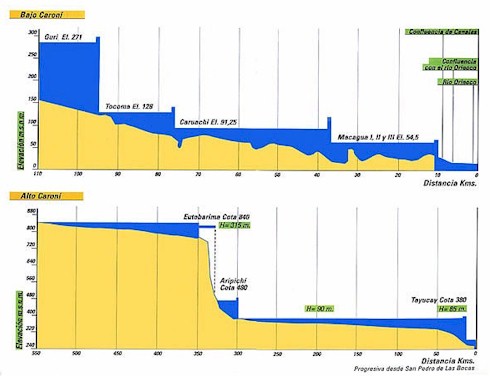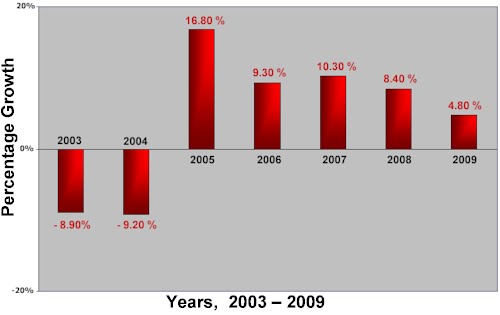 |
| Spanish Prime Minister José Luis Rodríguez Zapatero |
Zapatero Comes to the Rescue of Chavez and CastroOn Saturday Spanish Prime Minister José Luis Rodríguez Zapatero came to the rescue of Hugo Chavez, not only saving the Venezuelan president from being called to answer for his regime's collaboration with the Basque terrorist ETA and the Colombian FARC, but also pulling the rug out from underneath his country's own
Audiencia Nacional (National Court), which
issued an indictment for six ETA and seven FARC members earlier this week. What did he do? Well, in the ultimate act of spin control, he qualified the recent indictment as a mere "
hypothesis" of Venezuela's relationship with the ETA and the FARC and, after changing the demand for an "explanation" to a simple request for "information," the Spanish government joined with that of Chavez to issue
a joint statement "reaffirming their fight against the ETA," effectively setting the matter aside for Chavez. It is an absolutely perfidious development which, had we paid closer attention, should have been expected all along, as there were definitely signs of Zapatero's moral degradation and insensitivity to democratic and human rights long before this ultimate act of policy pursued on behalf of tyranny, not to mention the abject betrayal of his country's own legal system.
In addition to his rallying to the aid of Chavez, there is also the matter of Zapatero's current role within the activism of the European Left, who have
successfully protected the Castro regime against European Union sanction for overt human rights violations, which the recent death of Cuban dissident and political prisoner Orlando Zapata Tamayo has brought to the forefront of discussion. Zapatero is now playing an absolutely sinister role in European and world politics, that of Defender of the Socialist Faithful, regardless of the tragic consequences for democratic and human rights abroad, as well as the undermining of both the legal institutions of his own country and the safety of the Spanish people from ETA terrorism.
Zapatero's Political Profile: A Deceitful Ideologue Bent on Cultural WarfareRegardless of one's opinion of Zapatero, and I will make clear that I hold him in very low esteem, his
personal history is a cloudy one which, when told, always excites reaction from either his supporters or opponents, as the case may be, who insist that their alternative is the proper version. But I think it would be accurate to say that throughout his political career, he has appeared much more ideologically oriented as an activist among Spanish and European Socialists than when presenting himself politically to the Spanish people. He has even been accused by the opposing
Partido Popular (Spanish People's Party or PP) of stealing some of their ideas, such as the Anti-Terrorist Freedom Pact of December, 2000, which was largely aimed at isolating Basque terrorists. By supporting it as one of the earliest initiatives of his tenure as leader of Spain's Socialist Party (PSOE), Zapatero cast himself before the Spanish public as a moderate; a man who wished to develop a less confrontational and threatening profile for Spanish Socialists. He even referred to his personal style as
Oposición Tranquila (Calm Opposition), which gave him a public image that placed him within what most would consider the political mainstream.
Zapatero's opponents in the PP never viewed him as a mainstream politician, but as the issues around which they contested his policy initiatives during his tenure as Prime Minister demonstrate, their focus was clearly directed more to confrontations on cultural values than upon economic, fiscal, and foreign policy issues; which did not serve the PP well because Zapatero's fiscal and economic policies have been a disaster for Spain.
Currently the country faces double digit unemployment, a budget deficit of 11.4% of GDP, and has been ordered by the EU to implement an austerity plan that must bring its deficit down to 3% of GDP by 2013. Zapatero remarkably claims that these targets will be met even though social spending, research and development funding, sustainable economy funds, and development aid all will remain unaffected by impending budget cuts.
When one considers that Spain is only one notch above Greece in the EU's mandated austerity program, it becomes difficult to understand how Zapatero and the PSOE have remained in power these past six years. The answer is that the PP and other opposition groups in Spain spent their collective effort at resisting Zapatero and the PSOE on cultural issues. During Zapatero's Prime Ministry the left successfully passed initiatives recognizing same sex marriage, expanded adoption rights for gay couples, legal recognition of transsexual identity, and expanded access to abortion services; all of which angered the traditional Catholic right within Spain and provoked no small amount of outrage within their political activism. And at the same time, Spain has emerged as the center for the cultural left within Europe, which only aggravated Zapatero's opponents further. But a coherent and cohesive critique of his fiscal and economic policies has never emerged within Spanish politics, much to the discredit of the PP.
Finally; it must be mentioned that Zapatero also negotiated--
you can forget any political spin which suggests otherwise--with the Basque ETA terrorist organization, which early into his administration appeared to some to suggest the promise of peace. In March, 2006 the ETA supposedly declared a ceasefire that was rendered meaningless the following year with a bomb attack at Madrid's main airport. Zapatero's ETA policy is boldly two-faced. He consistently presents a public front of pursuing a hard line against the Basque terrorists, while
again and again news surfaces of direct contacts with the organization maintained between his government, the PSOE, and other supporters. It has been one of the most dangerous policy initiatives of his administration, because it does have the potential to unite the Spanish people against him. Yet somehow Zapatero has always managed to defuse the critique of his ETA associations by appearing credible in his public pronouncements of getting tough with the organization, however much at odds with his policies this stance has been in fact.
In short, Zapatero is a successful politician who understands how to say publicly what people want to hear while pursuing policy initiatives that produce the opposite of what he promises. He nonetheless succeeds politically by uniting his supporters around an agenda that is ideologically oriented towards advancing cultural conflict within Spain on values issues, which also gives him credibility and additional support from within the international left, while simultaneously rendering his opposition ineffective as they exhaust themselves in cultural warfare, always failing to hold him accountable for his mismanagement of the country's economy and government. Saying one thing, doing another, and avoiding the consequences through his manipulation of his opponents and his obeisance to the ideological whims of his supporters, that is the Zapatero style. You know--a liar.
Zapatero and the Latin American LeftAs Prime Minister Zapatero has a record of supporting Latin American leftist regimes. His attitudes towards their repeated violations of human rights and democratic freedoms do not match well with those of most of the developed world in either the western hemisphere or within the European Union. But again, he has managed to mute criticism of his policies by effectively paying lip service to ideals which he either does not espouse or defines in terms quite differently than others.
Since first entering office in 2004 Zapatero has worked consistently to foster a leadership role for Spain among the Spanish and Portugese speaking nations of "Ibero-America." Remaining true to his Socialist political affiliation, he has especially sought to make himself into a bridge assisting the integration of Castroite Cuba and other marginalized left-leaning governments, such as Venezuela and Bolivia, into the international community. The principal foreign policy framework he has utilized to manage these associations has been the
Ibero-American Summit. Traditionally this has been a largely cultural and economic gathering of Latin American nations with Spain and Portugal that never amounted to much. But it has given Zapatero an organizational mechanism for economic outreach to the left in Latin America through its proposals for debt forgiveness and restructuring via the Ibero-American Inter-Development Bank, always a friend to economically-challenged leftist regimes. In their own turn, they have returned the favors in kind through the negotiation of commercial arrangements with Spanish business enterprise.
Rehabilitating the
image of Castroite Cuba--as opposed to effecting real change within the country--was one of the first goals of Zapatero's Latin American policy. He was unsuccessful in his
attempt to arrange Fidel Castro's attendance at the 2005 Ibero-American Summit, perhaps because the gathering spent a great deal of its effort on promoting the right of free migration, which is not a topic that would appeal to Fidel. But in 2008 Zapatero was successful in lobbying the European Union to
repeal the 2003 sanctions it imposed on Cuba following one of Castro's many crackdowns on dissidents. And he followed up that success just this week when, using his influence as temporary President of the EU parliament, he prevented the imposition of new sanctions as a response to the death of Orlando Zapata Tamayo in a Cuban jail, limiting the action to a
near useless declaration of indignation.
So what are we to think of Zapatero's support for Castro and his Cuban regime? Well, it certainly is not economically motivated. Though exact figures are not easily available, Spain agreed to
forgive a good portion of Cuba's multi-hundred million dollar debt in 2008 and Cuba has not been a productive trading partner with Spain, or anyone else for that matter
The Relationship with Venezuela: Selling the Spanish SoulThough it is difficult to qualify and rank Zapatero's recent outrages, his rescue of Hugo Chavez from the indictment of the Spanish National Court would appear to be the most serious, given his obligations as Prime Minister to uphold Spanish law and support the country's institutions, not to mention Spain's stature within the international community, which can only have been damaged by the conflicting signals now being sent abroad. The most important immediate consequence of the new "cooperative" (this sticks in my throat) approach to dealing with the ETA and the FARC that has been jointly announced in Caracas and Madrid is that there will be no arrests, nor any prosecution of the individuals named in Judge Velasco's
auto. There are obviously domestic political consequences within Spanish politics, but these may not be so negative as one might at first assume, since Zapatero has proven himself quite deft at angering the PP and then letting them become their own worst enemies as they splinter into fragments and fail to coalesce around a unified opposition stance. All we are really left to ask ourselves is whether Zapatero's primary motivation for saving Chavez was ideological and political, as is clearly the case with Cuba, or economic, which is a new factor to consider with respect to Spain's relationship with Venezuela.
The economic ties Zapatero has helped forge with Venezuela are particularly important to Spain and especially so over the past couple of years. Spanish investment in Venezuela has been huge, counting such enterprises as
Telefónica Venezuela (over $2 Billion U.S.), Spanish oil developer Repsol YPF's stake in
developing the Orinoco oil fields in Carabobo, which give the company proven reserves of 75 billion barrels of heavy crude, the Banco Bibao Vizcaya Argentario of Madrid's
55% share in Venezuela's Banco Provincial, and Spanish energy conglomerates Iberdrola and Elecnor's $2 Billion (U.S.)
contract to build combined cycle electrical power plants in Venezuela's Sucre state. There have also been weapons sales to Venezuela and more preceding these recent arrangements.
It can be argued that economics trumps politics and ideology, but in this instance the point is moot. From Zapatero's perspective there is no conflict, all the aforementioned factors influence his actions in the same direction; saving Chavez and protecting Spanish investments and jobs all go hand in hand.
One might suggest that there is a moral conflict for Zapatero, in that undermining his country's system of justice and even placing the Spanish people at greater risk from Basque terrorism would mitigate against his pro-Chavez policy in this instance, but I would counter that this moral conflict does not exist.
Moral conflicts are only for virtuous men. That excludes José Luis Rodríguez Zapatero.
StJacques
-----------------------------------------------
Update: March 18, 2010, 4:10 p.m. I have removed a quote and a paragraph from my original entry regarding a "letter" published in the Spanish newspaper
El Mundo on April 10, 2007, supposedly sent from Zapatero to Fidel Castro. While I cannot present any information which says that the letter is not genuine, nor has any been presented to me, and even though the author of the article in which it was published, Luis Maria Anson, has never stated that it was anything but genuine, I am taking the advice of
Tea and Politics blogger Claudia Al, that I should not treat the letter as an historical document. Whether the letter is genuine or not, I am certain that Claudia would not act to deceive me, much less protect Zapatero.
StJ
Read More. . . .



















